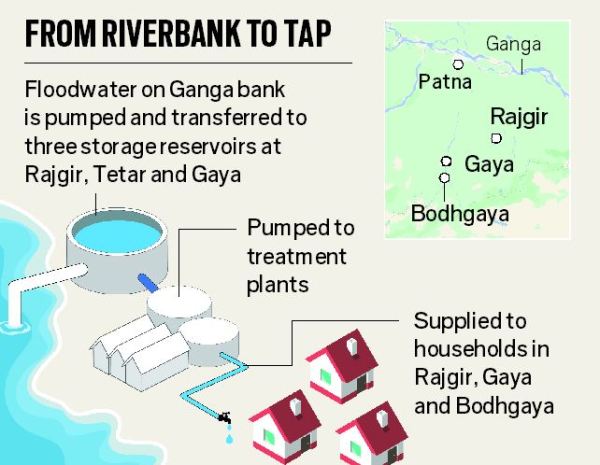With mounting flak, Nitish Kumar’s only choice was to have Bihar minister Manju Verma resign
4 min read By securing the resignation of Manju Verma, the social welfare minister of Bihar, Chief Minister Nitish Kumar finally did the least that was expected of him after the horrific rapes at the Muzaffarpur shelter home came to light. But it was delayed action on his part as it came two weeks after the case, involving the sexual assault of over 40 girls, blew up on national and regional media.
By securing the resignation of Manju Verma, the social welfare minister of Bihar, Chief Minister Nitish Kumar finally did the least that was expected of him after the horrific rapes at the Muzaffarpur shelter home came to light. But it was delayed action on his part as it came two weeks after the case, involving the sexual assault of over 40 girls, blew up on national and regional media.
What perhaps saved Verma from being sacked so far was the fact that she belongs to the influential Koiri, or Kushwaha, community. There was apprehension in the circles of the ruling Janata Dal (United)-Bharatiya Janata Party coalition in Bihar that her community would not take lightly to an ignominious exit for Verma.
The other ally of the BJP-led National Democratic Alliance in Bihar, Upendra Kushwaha of the Rashtriya Lok Samta Party (RLSP), had been publicly voicing his angst against the chief minister. Kushwaha, who is also the Minister of State for Human Resource Development at the Centre, had in fact been projecting himself as the JD(U) chief’s potential replacement as Bihar chief minister and leader of the NDA in the state.
Nitish’s continued indecisiveness on Verma’s fate could have been for two reasons. First, there was nothing to suggest her direct complicity with the prime accused in the case, Brajesh Thakur, and his associates. However, her husband was known to have close relations with the prime accused, and had visited the children’s home Thakur ran in Muzaffarpur on a number of occasions.
The association between Thakur and Verma’s husband had been known since the day the rapes at the shelter home surfaced, and the district police had carried out preliminary investigations. Even then, Nitish did not take action then; he continued to shield the Verma couple.
Sources in the ruling coalition in Bihar told Firstpost that investigations had brought to light Thakur’s call data records from a fortnight before his arrest, which had revealed over a dozen conversations with the minister’s husband. The records, which have been procured by the Central Bureau of Investigation, are what finally pushed Nitish to act and ask Manju Verma to resign.
Now, the second reason for Nitish’s hesitation: Those who follow the JD(U) chief’s politics, both as a leader and as an administrator, are aware that he is quite image-conscious. A senior leader of the ruling JD(U)-BJP coalition said, “We all know that when he thinks a certain development is affecting his image adversely, he reacts impulsively. In such situations, he does not hesitate to take an extreme position.”
One can think of a whole lot of instances of when Nitish has acted impulsively — withdrawing from the alliance with Lalu Prasad Yadav’s Rashtiya Janata Dal (RJD) when the corruption cases against the RJD chief and his family had begun to mar Nitish’s image as chief minister; pulling out of the alliance with the BJP when he believed that the rise of Narendra Modi would affect his carefully-cultivated Pasmanda Muslim support and his image as a secular leader; resigning from the Bihar chief minister’s post after facing a humiliating defeat in the parliamentary elections; and resigning as the Union railway minister after the Gaisal train accident.
After displaying a lackadaisical attitude towards the Muzaffarpur case initially and then getting bombarded by brickbats, Nitish tried to move fast. He transferred the investigation to the CBI, asked for the inquiry be monitored by the high court, and held two press conferences at which he declared that the case had put “Bihar to shame” and he “felt ashamed as a Bihari”.
The chief minister was clearly disturbed that the matter was taking a heavy toll on his image. His sushasan babu (good governance man) tag had taken a beating and was being ridiculed. Even a party like the RJD had launched a full-blown attack on him. Tejashwi Yadav had been trying to use this case as an opportunity to project himself as a serious leader both in and out of Bihar. Even the likes of Arvind Kejriwal, Nitish’s erstwhile friend, was seen by Tejashwi’s side.
At present, there is also an impression in Bihar that Nitish has not been that effective an administrator this term as he had been during his previous tenures as chief minister. Maintaining law and order used to be his strong suit, but he has been losing out on that count in the eyes of the public.
Nitish had no choice but to act to cut his losses, to salvage the damage to the extent he could. It is evident that over the past few days, the Bihar chief minister had been trying to get his act together, both as a prominent leader of the NDA and as an administrator.
This is clear from his swift action to reach out to Odisha chief minister Naven Patnaik and Telangana chief minister K Chandrashekher Rao to secure the support of their Biju Janata Dal (BJD) and the Telangana Rashtra Samithi (TRS) for the NDA’s nominee for the Rajya Sabha deputy chairman. The NDA has fielded JD(U) parliamentarian Harivansh Narayan Singh as its candidate for the Rajya Sabha deputy chief’s post. Nitish succeeded in his endeavor, as both Patnaik and Rao assured him of their party’s support, which was critical to ensure Harivansh’s victory.
Courtesy: FirstPost


